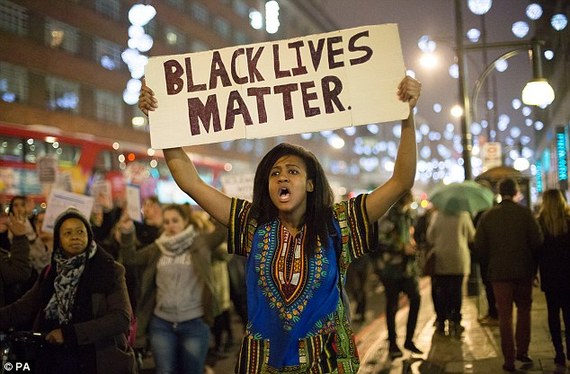After having given a presentation with Speak Up Florida on the topic of the New Jim Crow, I encountered a white man named Gordon who was in the audience. During the presentation I mentioned that I was a writer and Gordon wanted to know if I could write about an incident involving a man named Mario Abraham. Abraham was a Haitian who was living in Palm Beach County, Florida. He was arrested on traffic and theft charges. In jail he suffered a broken neck and died five days later. Witnesses claimed that Abraham was beaten with a broom handle for refusing to leave his jail cell. Doctors believed that Abraham was faking his injuries so he did receive the necessary treatment for his injuries. The officer who was indicted for the beating was acquitted, although Abraham's family did receive a settlement from the police department.
The case is similar to what happened with Freddie Gray in Baltimore, and in fact Gordon himself made the comparison when he was telling me about this incident. What struck me about the conversation was his genuine disgust and anger with how Abraham had been treated. The conversation was also marked by the feeling of how just how little had really changed since the 1980s. In regards to the importance placed on the lives of African people relatively little has changed since the first slaves were brought to North America in 1619. Despite all of the amendments and civil rights law that have been put in place to protect the rights of African people since 1619, there is still a pervasive sense that African American lives simply do not matter.
My encounter with Gordon was my first time ever hearing about Mario Abraham, although I had done enough research to know that this is not a recent issue. In my book The Black African Crisis in the Age of a Black President, I pointed out that the death of Trayvon Martin was part of the larger history of Black suffering in America that I traced back to the Dred Scott decision when the Supreme Court ruled that African Americans, whether free or enslaved, did not have the rights of American citizens. This single decision in my opinion sums up the entire experience of African Americans as a people that have constantly struggled for equal representation under the law. In that same book I go through numerous cases of African people that were killed following the abolition of slavery such as Oscar Grant, Jesse Washington, Sam Hose, and Mary Turner who was killed along with her unborn child. I also stress African people because it's not only African Americans. As Mario Abraham's death demonstrates, immigrants from the Caribbean and Africa have also been victimized as well. The conclusion I wanted to make in that chapter of my book is that African people have been the victims of aggression and violence for a long time, and that Trayvon Martin's death was a continuation of that problem.
The Black Lives Matter movement is a relatively recent movement, but the problem that it seeks to address is one that is as old as America's history. This is something that really does not get addressed as often as it should be, which is one of the reasons why I appreciated my brief discussion with Gordon about the fate of Mario Abraham. It not only informed me about yet another case of an African being unjustly killed without no one really being held accountable for his killing, but it was yet another reminder that this fight for justice is a historical one.
--
Dwayne is the author of several books on the history and experiences of African people, both on the continent and in the diaspora. His books are available through Amazon. You can also follow Dwayne on Facebook.

